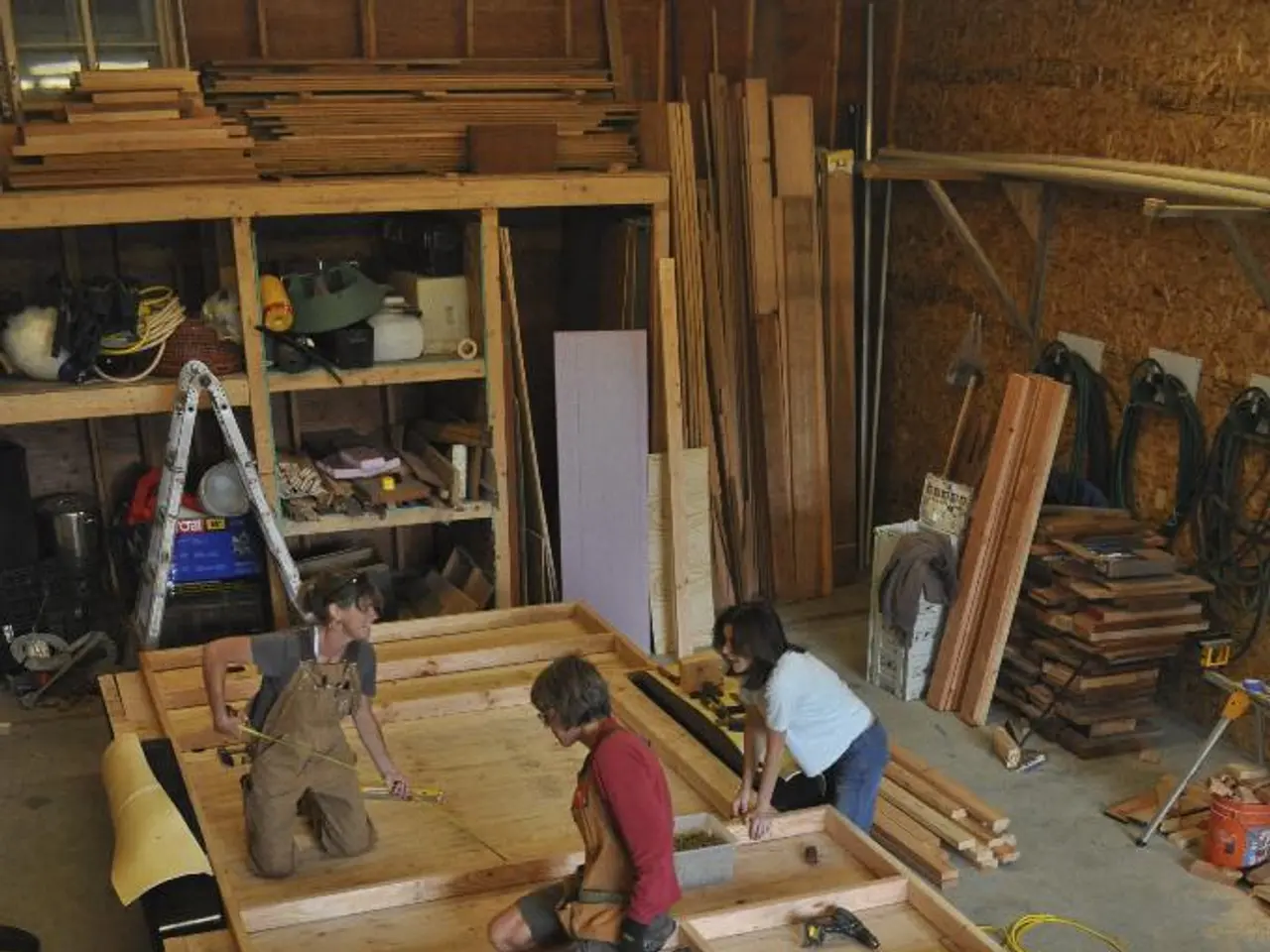Understand the essential steps for a successful plasterboard installation in a garage
Plasterboarding your garage can be an excellent way to create extra living or working space without the need for a costly extension. Follow this comprehensive guide to gather the necessary tools and materials, and learn the steps to effectively plasterboard your garage, creating a smooth and insulated space.
Essential Tools for Plasterboarding
To embark on this transformation, you'll need a selection of tools to ensure the job is done efficiently and professionally. Here's a list of tools you'll find indispensable:
- Tape measure
- Pencil
- Jab saw
- Utility knife
- Hand saw
- T-square
- Hole saw
- Jigsaw
- Combi drill
- Laser/spirit level
- Working platform
- Plasterboard lifter (optional)
- Plasterboard hoist (optional)
Important Materials for Plasterboarding
In addition to tools, you'll need specific materials to complete the plasterboarding project:
- Metal or timber studwork
- Plasterboard
- Breathable membrane/vapour barrier
- Insulation (boards or rolls)
- Plasterboard screws
- Plasterboard joining tape
- Plasterboard adhesive
Key Considerations for Plasterboarding Your Garage
- Moisture Protection: Fitting a moisture-proof membrane between wooden battens and the wall is crucial to prevent moisture accumulation and the potential issues that arise, such as mould, soft spots, and even corrosion of a metal frame if used.
- Insulation: Insulation should be placed in the spaces between the battens to maintain a comfortable temperature in your garage. Boards are often a better choice for insulation, but rolls can also be used.
- Vapour Barrier: To stop condensation, a vapour barrier should be installed over the insulation before fitting the plasterboard.
- Fire-Resistant Plasterboard: In integral or attached garages, fire-resistant plasterboard must be used to comply with Building Regulations.
- Soundproofing: For improved soundproofing, consider using acoustic plasterboard.
- Insulated Plasterboard: If extra warmth is a priority, insulated plasterboard may be a better choice.
- Framing: The first step in plasterboarding a garage is to put up a frame, which can be metal or timber studs.
Labour Costs and Overall Expenses
Labour costs will depend on location and experience, but typically range from £150 to £250 per day. A professional job might cost between £700 and £1200, including materials and labour. On average, plasterboard, insulation, vapour barriers, and fixings can cost between £300 and £600 for an average-sized garage. The costs to plasterboard a garage will depend on several factors, such as the size of the garage, the quality of materials, location, and whether you call in a pro.
With these tips and considerations in mind, you're well on your way to transforming your garage into an affordable, friendly, and welcoming area. Happy plasterboarding!
- A comprehensive list of tools for plasterboarding garages includes a tape measure, pencil, jab saw, utility knife, hand saw, T-square, hole saw, jigsaw, combi drill, laser/spirit level, working platform, plasterboard lifter, plasterboard hoist, and more.
- When plasterboarding, utilizing metal or timber studwork, plasterboard, a breathable membrane/vapour barrier, insulation, plasterboard screws, plasterboard joining tape, plasterboard adhesive, and other specific materials is essential.
- Moisture protection, proper insulation, vapour barrier installation, fire-resistant plasterboard for garage extensions, soundproofing, insulated plasterboard, and framing are key considerations for plasterboarding your garage.
- Labour costs for plasterboarding a garage can range from £150 to £250 per day, with professional jobs costing between £700 and £1200, including materials and labour.
- The costs of materials for an average-sized garage, such as plasterboard, insulation, vapour barriers, and fixings, typically cost between £300 and £600.
- The costs for plasterboarding a garage can vary based on factors like the size of the garage, quality of materials, location, and whether a professional is hired.
- Plasterboarding your garage creatively can be an affordable way to add an extension to your home or create a welcoming indoor space.
- Your lifestyle, home-and-garden ideas, and design preferences might influence the choice of plasterboard options, such as acoustic and insulated plasterboard for soundproofing and extra warmth.
- Utilize this guide as a reference to successfully build a plasterboarded garage with cost-effective materials, efficient tools, and professional results.




